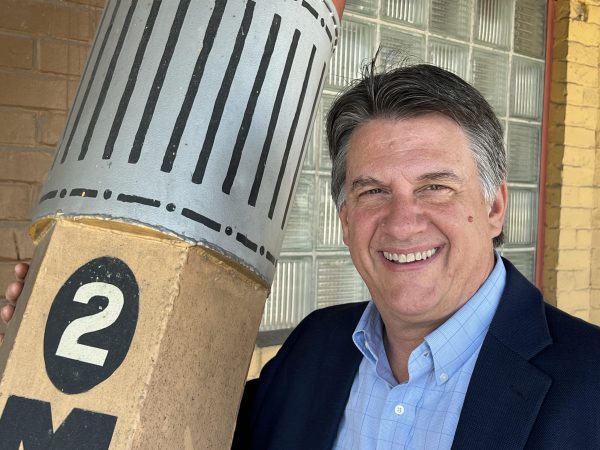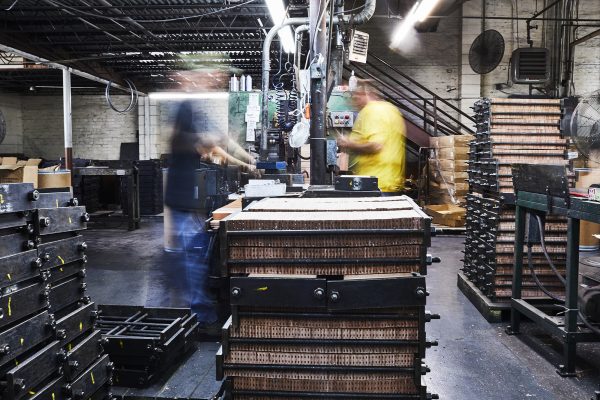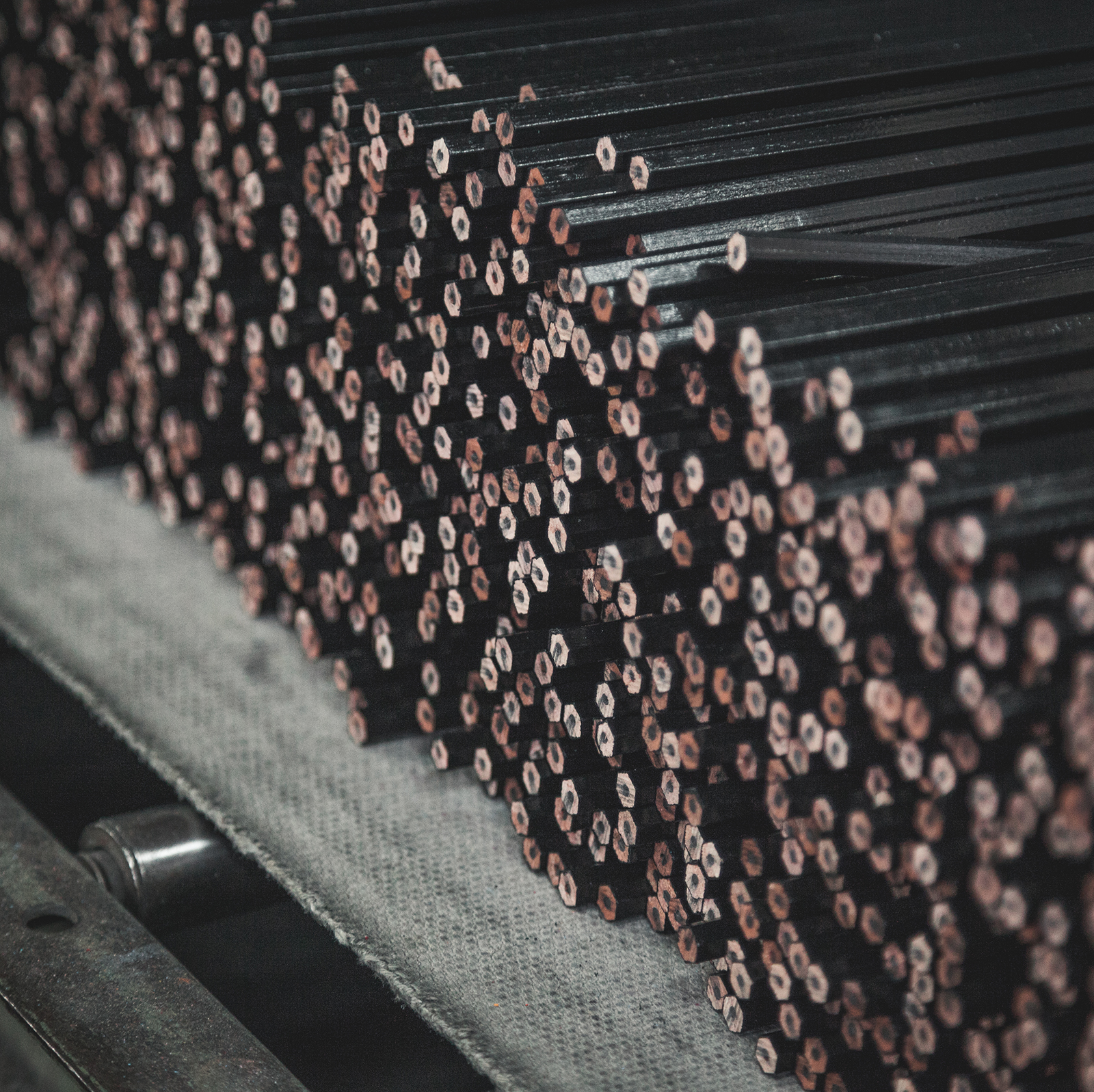Scott Johnson, president of the Musgrave Pencil Company, is staying sharp. After long careers designing power generation plants and acute care medical facilities, the electrical engineering major made a career leap two years ago to take the top job at the nation’s largest pencil maker.

“I’ve learned what it means to lead a multifaceted organization—from sales to accounting. Every 15 minutes is different, and I love the variety,” says Johnson, who heads one of only three remaining U.S. pencil companies. His wife, Ann Johnson, BSN’87, is the great-granddaughter of company founder James Raford Musgrave.
The Shelbyville, Tennessee, company began life as a pencil-wood mill in 1916 and once ranked among the nation’s top 10 manufacturers. Today, almost all the 3.7 billion pencils sold each year in the U.S. come from China, but Musgrave spins out 72 million pencils annually, accounting for about 2 percent of the market share.
Musgrave thrives thanks to its focus on custom manufacturing for clients. Buyers range from big box home improvement retailers (rectangular non-rolling pencils used at construction sites) to the company’s second-biggest money maker—rub-and-sniff colored pencils that smell like lemonade, wildflowers and other fragrances for maker Melissa & Doug. They sell out in college bookstores, which tout them as mental health and stress-relieving tools.
“The world’s smallest billboards” is how Johnson describes his specialty writing implements. “Not being beholden to a larger company gives us the agility to move with the market and allows us to be creative with new products,” he says.
The Sarasota, Florida, native gently tweaks his non-pencil competitors. “Nothing against our friends in the pen industry,” he says, “but think about all the plastic that goes into a pen. The eraser is the oldest known Delete key.”
While Johnson takes care not to criticize his much larger pencil competitors, he notes his pencils’ superiority. “We buy only quality graphite,” he says. “You wouldn’t believe the processes used to extrude a graphite core and make it high quality. You absolutely have to have the right formulation, right processes, right conditions and everything else to fire that ‘lead’ at 1,400 degrees for 12 hours.”

Change comes slowly to pencil making. The grooving, gluing, shaping, varnishing and tipping (adding the eraser and metal ferrule) is done at Musgrave much as it was years ago, with most of its 100 employees tending Rube Goldberg-type machines that clank, rattle, whine and roll out steady streams of pencils.
Yet innovation has also helped this $13 million business see 10 percent growth in the last year. The company also makes specialty boxes for gift-type products, which boosts their bottom line. “We love the smell of cardboard,” Johnson says.
He reserves his greatest praise for Musgrave’s soon-to-be-released newest product: an egg-shaped pencil developed by HandyScribe. Its patented ovate shaft will help craftspeople draw more precise lines. “You won’t find this shape anywhere else in the pencil world,” he says.
Johnson rarely misses an opportunity to extol the virtues of his industry. “The pencil expresses creativity: it’s an educational tool, a construction tool,” he says, “and it’s sustainable.”
—GEORGE SPENCER
